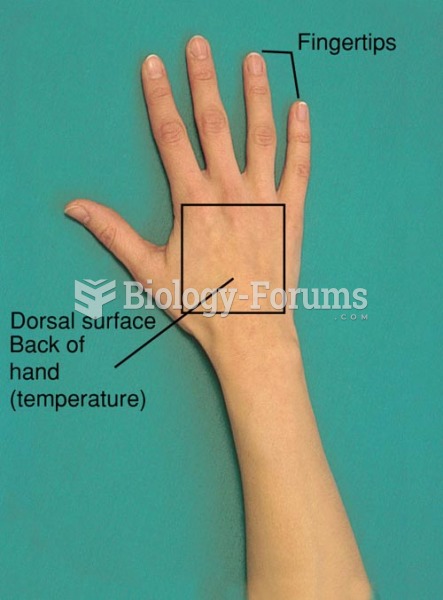|
|
|
The most common treatment options for addiction include psychotherapy, support groups, and individual counseling.
Lower drug doses for elderly patients should be used first, with titrations of the dose as tolerated to prevent unwanted drug-related pharmacodynamic effects.
Acute bronchitis is an inflammation of the breathing tubes (bronchi), which causes increased mucus production and other changes. It is usually caused by bacteria or viruses, can be serious in people who have pulmonary or cardiac diseases, and can lead to pneumonia.
Blood in the urine can be a sign of a kidney stone, glomerulonephritis, or other kidney problems.
Although the Roman numeral for the number 4 has always been taught to have been "IV," according to historians, the ancient Romans probably used "IIII" most of the time. This is partially backed up by the fact that early grandfather clocks displayed IIII for the number 4 instead of IV. Early clockmakers apparently thought that the IIII balanced out the VIII (used for the number 8) on the clock face and that it just looked better.
 An adult male killer whale with its characteristic tall dorsal fin swims in the waters near Tysfjord
An adult male killer whale with its characteristic tall dorsal fin swims in the waters near Tysfjord
 Peripheral veins used in intravenous therapy; A, forearm; B, dorsum of the hand; C, dorsal plexus of
Peripheral veins used in intravenous therapy; A, forearm; B, dorsum of the hand; C, dorsal plexus of
 A Dorsal view of a scan of the hand phalange of a child from Denisova that yielded mtDNA that differ
A Dorsal view of a scan of the hand phalange of a child from Denisova that yielded mtDNA that differ




